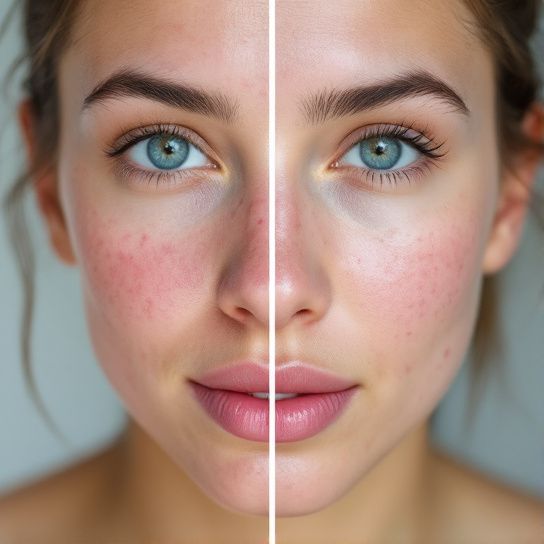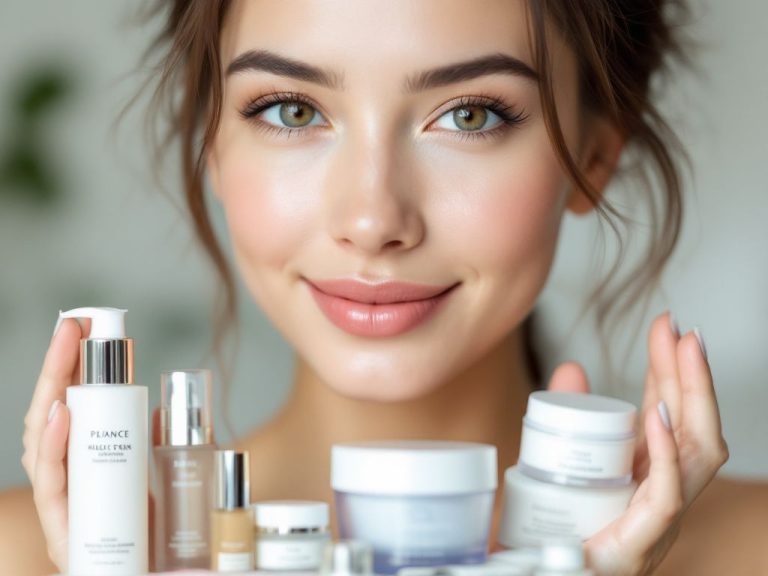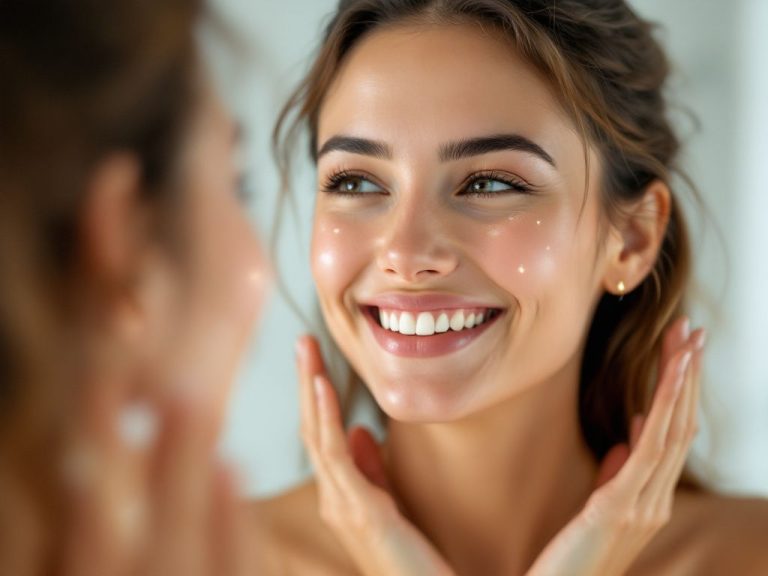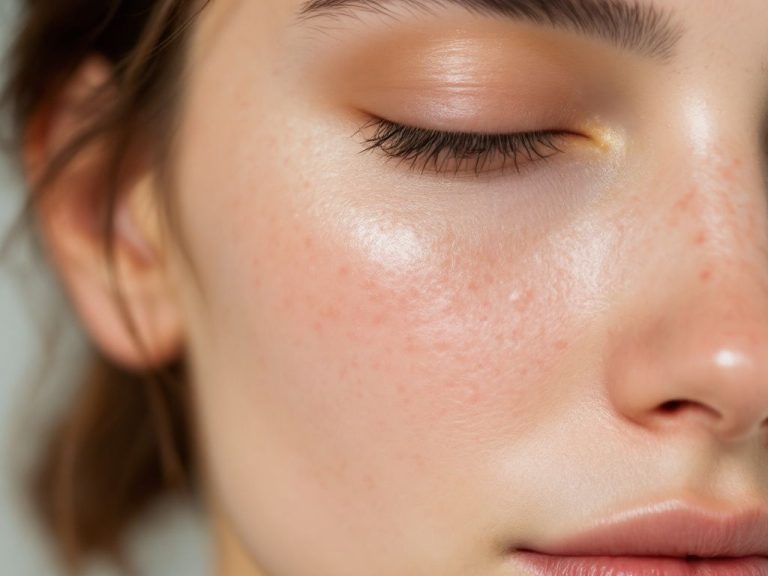Hey there! So, you’re curious about how medications affect acne? Well, you’re not alone. Many people, myself included, have stared into the mirror and wondered whether that new medication we’re taking is helping or hurting when it comes to our skin. It can be a tangled mess of information, right? But let’s take a closer look and see if we can untangle it together.
Table of Contents
ToggleThe Science of Acne
Let’s start with the basics. Acne isn’t just a teen issue—oh no—it’s something that can stick around or even show up later in life. Generally, it has a mind of its own, influenced by things like hormones, genetics, and yes, medications.
Acne is basically inflammation of the skin that starts when pores get clogged by excess oil, dead skin cells, or bacteria. When it comes to medications and their impact, things get interesting. Certain drugs can improve acne, while others can make it worse. And really, who wants to deal with more breakouts? So it’s all about knowing how those little pills influence our skin.
The Medicinal Culprits
Alright, onto the juicy details! Some medications can stir up trouble for your skin. Tweaking how your body normally operates, they might throw your hormone levels out of whack or stuff like that—resulting in acne flare-ups. Here’s the lowdown on some common offenders:
1. Steroids
Steroids can be a game-changer for controlling serious medical issues, but they can come with a pesky side effect: acne. Whether you’re taking them orally or rubbing them on, steroids can up the oiliness in your skin. More oil equals more clogged pores, which eventually leads to—you guessed it—acne.
2. Lithium

Used for managing mood disorders, lithium can be the main character in acne drama for some folks. It stimulates the skin in a way that might lead to breakouts. Definitely, something to chat with your doctor about if you notice connections.
3. Hormonal Medications
Such as birth control pills. These little tablets can be both villains and heroes. Some types can mess with your hormonal equilibrium, ushering in new blemishes faster than you can say ‘refill’. Others? They can help clear up your skin—specifically, those containing estrogen and progestin.
The Heroes in the Medication World
Now onto the good stuff—medications that can make your skin do a happy dance. If you’re battling acne, there are some go-to medications worth discussing with your dermatologist. Here’s the playlist for clearer skin:
1. Antibiotics
Both oral and topical antibiotics are famous for their ability to zap acne-causing bacteria. They’re like bodyguards for your skin by reducing inflammation and stopping those tiny troublemakers right at the source.
2. Retinoids
These vitamin A derivatives are absolute must-tries for tackling acne effectively. They swoop in, unclogging pores and preventing dead skin cells from pulling a hitchhiking routine into your pores.
3. Oral Contraceptives
We’ve touched on this one—they chip in to regulate hormones, specifically reducing androgens, which are notorious for producing excess oil. But, remember: not all birth control pills are your skin’s BFF, so it’s worth consulting a professional about which type is best for your skin type and situation.

Finding Balance in Medication Choices
It’s a bit like cooking a new dish without a recipe at first—trial and error. When considering medications for acne or other health issues, maintaining a balance is key. Some tips for navigating the medicinal minefield:
- Consult Your Dermatologist or Doc: Always step one. They know what they’re doing and can tailor recommendations specifically to what your skin and health need.
- Monitor Any Changes: Notice something off after starting a new drug? Jot it down. Subtle shifts in skin can alert both you and your healthcare provider to tweak your plan.
- Check Ingredients: Some acne medications can pair like fine wine with certain formulations if your current health condition allows. Others can clash terribly. When in doubt, it’s okay to ask for clearer labels or explanations.
Playing the Comparison Game
Here’s a hypothetical match-up—seeing how different medication scenarios could shape up for an acne-prone individual.
| Medication Type | Possible Skin Impact | What to Watch Out For |
|---|---|---|
| Steroids | May increase oil production | Instant increase in whiteheads, redness |
| Oral Antibiotics | Reduces bacteria | Positive skin response but potential temporary redness |
| Birth Control Pills | Varies | Acne may clear or worsen, depending on hormone levels |
| Retinoids | Helps unclog pores | Initial dryness or irritation can decrease over time |
It’s okay if this still feels a bit confusing. That’s just how skin is! But don’t worry, there’s a solution — or at least a step in the right direction.
Real Talk: Make Antibiotic Effects Work for You

Let’s switch gears to talk about antibiotics. They’re kind of like Batman in the world of acne treatment. Powerful, but there are a few things to think about. They mainly stop bacteria, but sometimes they might visit and hang around your skin’s good guys, too.
Thinking of trying them? Here’s what you want to pay attention to:
- Duration: Long-term use could lead to antibiotic resistance, and mixed results for your skin.
- Paired Skincare: Moisturize! While antibiotics work on deeper skin layers, keeping your protective barrier in check is crucial.
Over-The-Counter and Under-The-Radar Options
Not ready for prescriptions? Over-the-counter treatments can act like cover singers mimicking acne-hero medications. Salicylic acid and benzoyl peroxide are standout stars. Just remember—lots of options doesn’t mean more is better. A cleanser, a cream, possibly an SPF-loaded moisturizer—that’s usually plenty.
Moving on With Confidence
So now what? You’ve got a crew of wisdom to help steer your next steps. Which means, no longer stopping in the beauty aisle with that clueless expression. Go forth and use this newfound guidance to wrangle your acne in ways even the medication-themed path didn’t unravel fully.
Remember, managing acne triggered by medications often requires a two-step plan: treat the acne first, starting simply, and then figure out medication adjustments with a comfortable lifestyle fit. Sure, a magazine cover glow mightn’t be in everyone’s cards, but finding what makes you comfortable in your own skin—that’s a win.
So keep the conversation going with a professional, trust your journey to clearer skin, and don’t hesitate to share your own story; there’s relief in that shared experience. Plus, who knows whom you might help by the light of knowledge? Keep that skin knowledge net wide and chat about it; someone’s acne solution might just stem from it.
Ready to explore a skate-free walkway to happier, clearer skin? Trust me, you’ve got this—but just ensure you wear the right SPF.
Frequently Asked Questions
What are the potential harms of long-term acne treatment with oral antibiotics?
Long-term acne treatment with oral antibiotics can have several potential harms. Tetracyclines, for example, can cause nausea, vomiting, or diarrhea in 7% of patients, as well as dizziness, headache, and photosensitivity in 2%. Rarely, they can lead to hypersensitivity reactions and intracranial hypertension. Minocycline, a type of tetracycline, may increase the risk of systemic lupus erythematosus (SLE), autoimmune hepatitis, and polyarteritis nodosa after prolonged use. Macrolides are associated with cardiac conduction abnormalities and rare hepatotoxicity, while clindamycin can cause pseudomembranous colitis[1).
What are the common side effects of isotretinoin, a medication used for severe acne?
Isotretinoin, used for treating severe acne, can have several side effects. Common side effects include worsening acne temporarily, increased sun sensitivity, dryness of the skin, lips, and eyes, and potential issues with eyesight, hair thinning, and muscle or joint pain. Other possible side effects include rash, stomach problems, and unhealthy cholesterol levels. It is also important to note that isotretinoin can have serious side effects such as depression and the risk of severe birth defects, necessitating careful monitoring and participation in an FDA-approved risk management program[2][4).
Can other medications besides acne treatments cause acne or acne-like eruptions?
Yes, several medications can cause acne or acne-like eruptions. These include corticosteroids, lithium, anticonvulsants, barbiturates, androgenic steroids, DHEA, and medications containing bromides or iodides. For instance, corticosteroids can cause acneiform drug eruptions, while androgenic steroids can lead to true acne. These eruptions often resolve once the causative medication is stopped, although in some cases, treating the acne while continuing the medication may be necessary[3).
How long does it typically take to see improvements in acne when using prescription medications?
Improvements in acne when using prescription medications can take several weeks to months to become noticeable. For example, oral antibiotics may provide quicker relief but are generally used for a brief course due to the risk of antibiotic resistance. Topical retinoids and combined oral contraceptives may take a few months to show their full benefits. Isotretinoin, used for severe acne, can lead to long-term resolution after a course of therapy, but it may take several months to see significant improvements[4][5).
References







